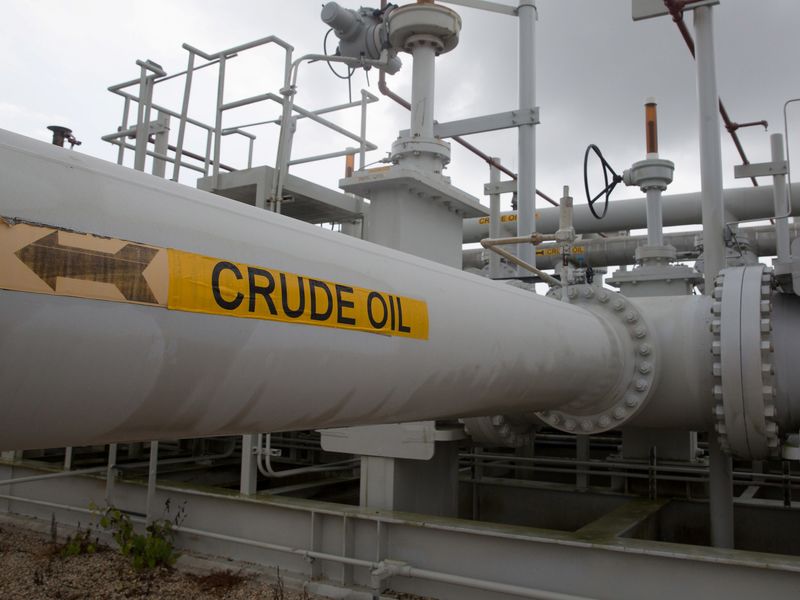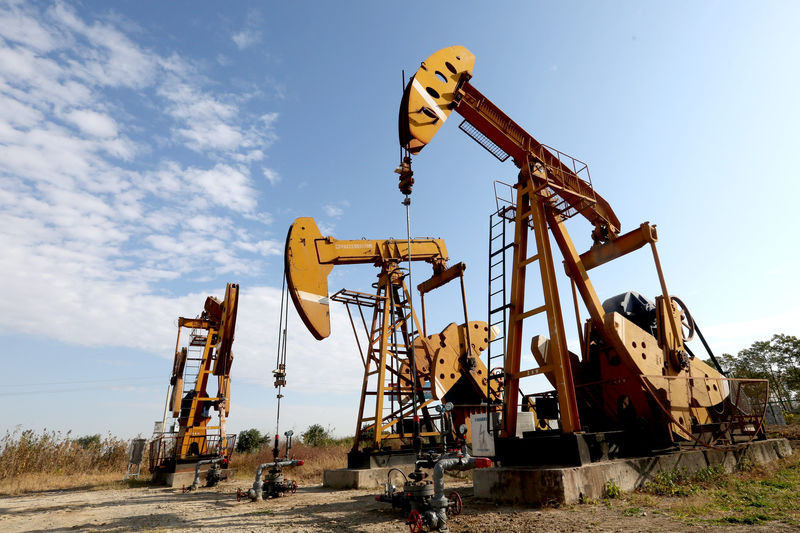By Noah Browning
LONDON (Reuters) - Oil prices were steady on Monday after pushing above $70 a barrel for the first time since the start of the coronavirus crisis, with support from U.S. stimulus and an attack on Saudi Arabian oil sites countered by global inflation fears.
Brent, which initially surged to $71.38 a barrel, its highest since Jan. 8, 2020, has slipped to trade down 20 cents or 0.2% on the day to $69.16 by 1341 GMT. The benchmark is still hovering around its highest level in more than a year.
U.S. West Texas Intermediate (WTI) crude was down 13 cents or 0.2% at $65.96 after touching $67.98 a barrel, its highest since October 2018.
GRAPHIC: Brent crude tops $70, WTI hits 2-year highs after reports of attacks on Saudi Arabian facilities - https://fingfx.thomsonreuters.com/gfx/ce/qmyvmwzemvr/BrentvsWTI.png
The U.S. Senate passed on Saturday President Joe Biden's $1.9 trillion COVID-19 relief plan, lifting prospects for the economy and fuel demand that has been pummelled by the pandemic.
Adding support, Houthi forces in Yemen fired drones and missiles at Saudi Arabia, including a Saudi Aramco (SE:2222) facility at Ras Tanura that is vital to petroleum exports. Riyadh said there were no casualties or loss of property.
"The spectacular oil price ascent deserves some cautious thinking ... Our balances indicate that the market is already tight enough to achieve a balanced recovery," said Rystad Energy oil markets analyst Louise Dickson.
"Looking ahead, higher crude prices at this stage of COVID-19 economic recovery could be premature," she said.
Global equities dipped on Monday as the U.S. stimulus package and a tech stock rally raised inflation jitters, partly fuelled by the rising oil price.
GRAPHIC: Brent crude oil prices top $70/barrel for the first time since the COVID-19 pandemic began - https://fingfx.thomsonreuters.com/gfx/ce/bdwpknxbwvm/BrentCurveMar82021.png
Crude prices have been buoyant since the Organization of the Petroleum Exporting Countries, Russia and their oil producing allies, known as OPEC+, agreed last week on broadly sticking with output cuts despite rising crude prices.

"There is little data to drive oil over the rest of the session, so sentiment is likely to remain a key force," said Sophie Griffiths is a market analyst with OANDA.
